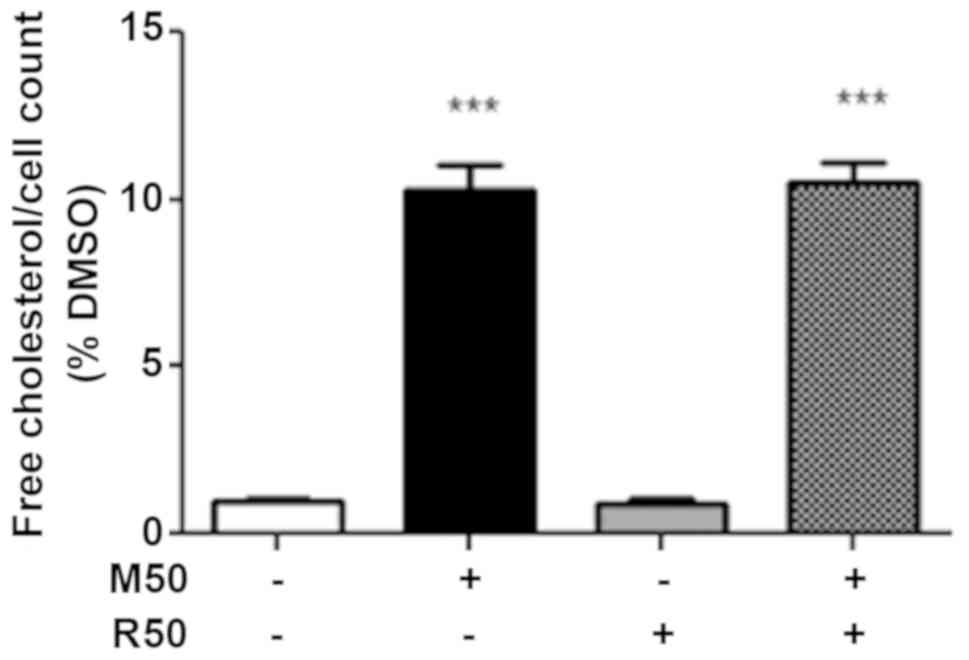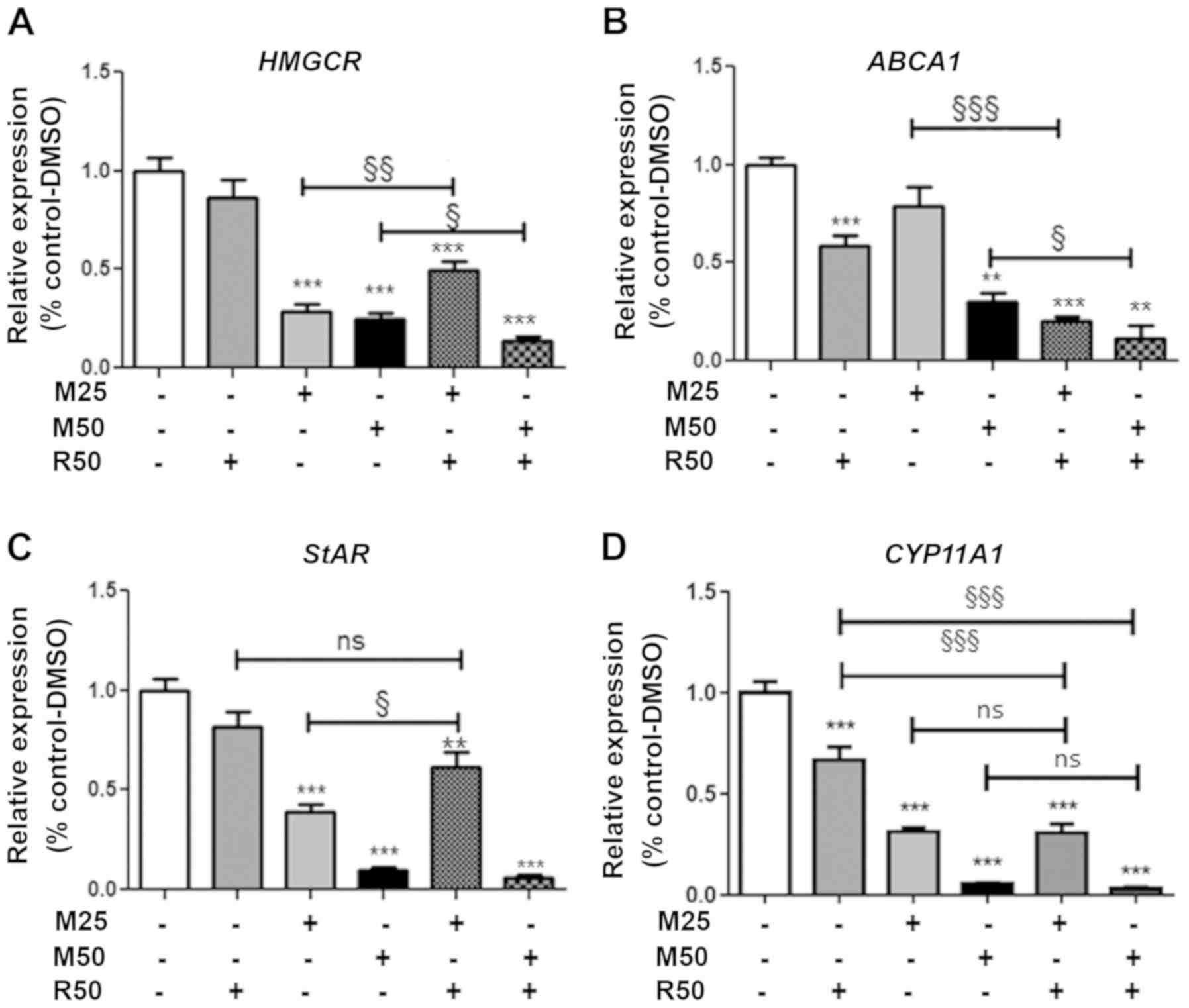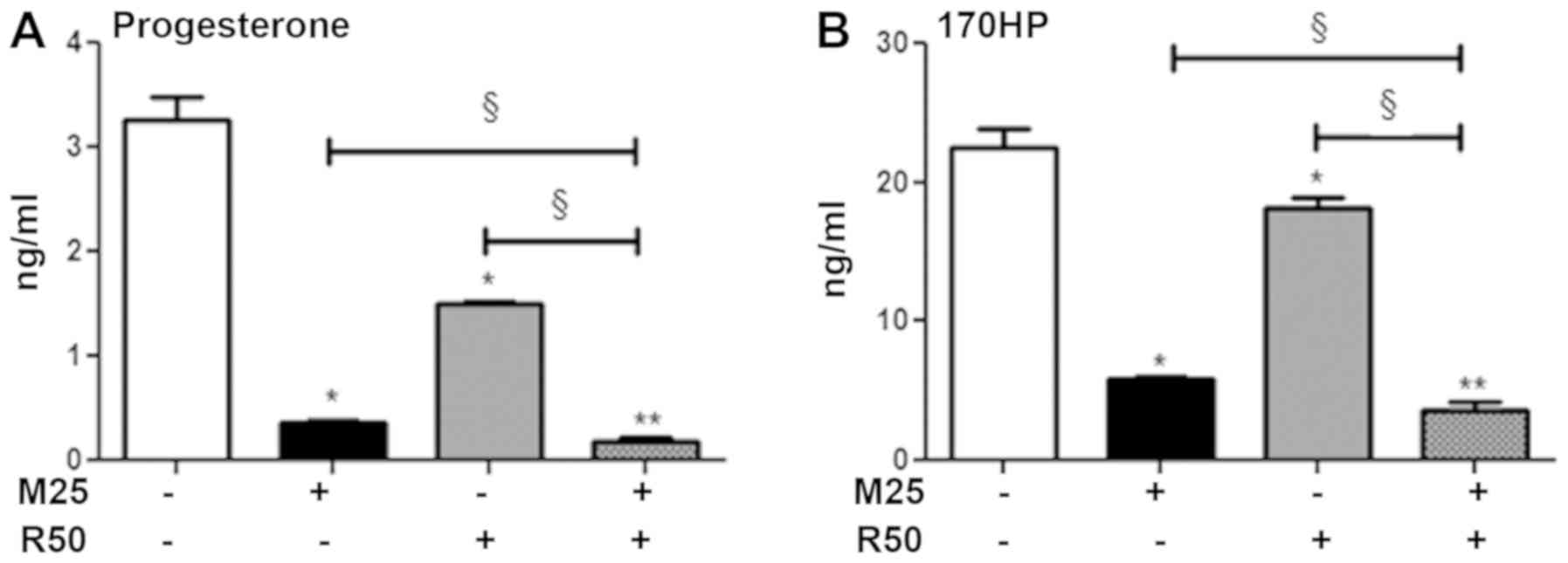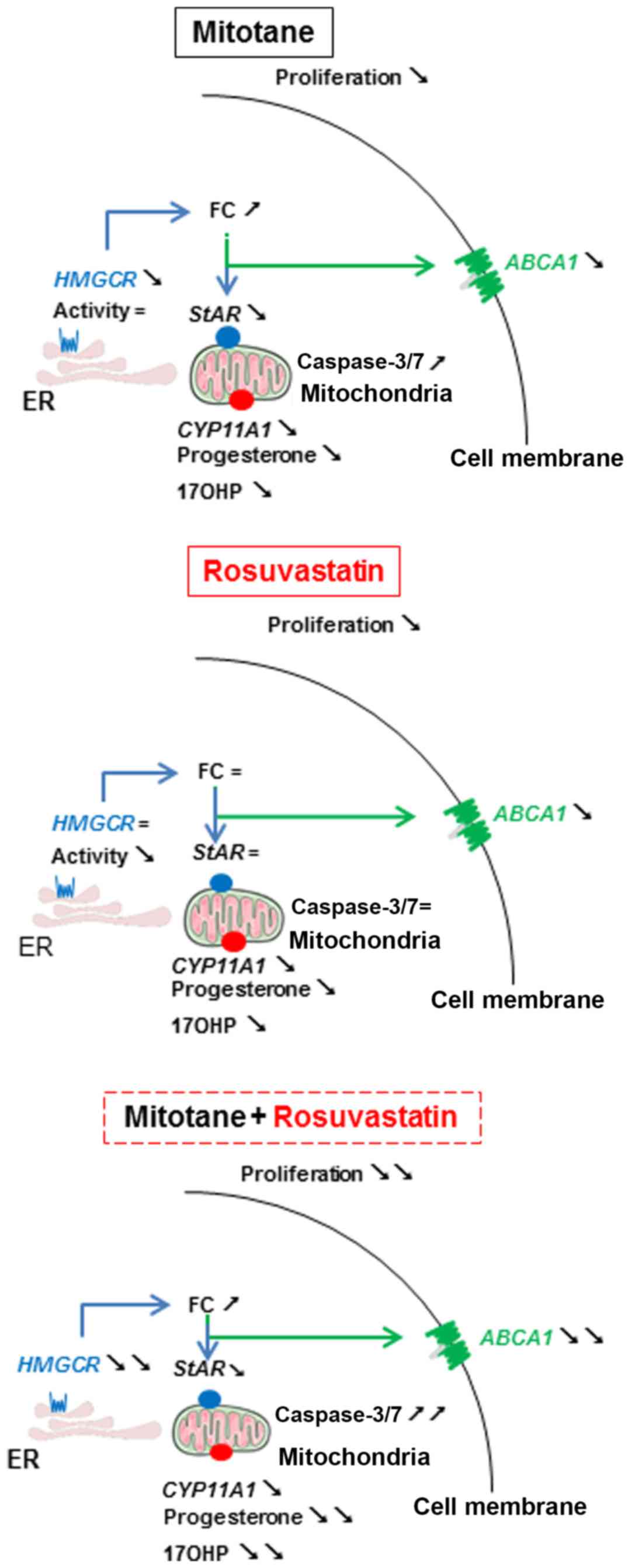|
1
|
Berruti A, Baudin E, Gelderblom H, Haak
HR, Porpiglia F and Fassnacht M: Adrenal cancer: ESMO Clinical
Practice Guidelines for diagnosis, treatment and follow-up. Ann
Oncol. 23(Suppl 7): vii131–vii138. 2012. View Article : Google Scholar : PubMed/NCBI
|
|
2
|
Hescot S, Slama A, Lombès A, Paci A, Remy
H, Leboulleux S, Chadarevian R, Trabado S, Amazit L, Young J, et
al: Mitotane alters mitochondrial respiratory chain activity by
inducing cytochrome c oxidase defect in human adrenocortical cells.
Endocr Relat Cancer. 20:371–381. 2013. View Article : Google Scholar : PubMed/NCBI
|
|
3
|
Hescot S, Seck A, Guerin M, Cockenpot F,
Huby T, Broutin S, Young J, Paci A, Baudin E and Lombès M:
Lipoprotein-free mitotane exerts high cytotoxic activity in
adrenocortical carcinoma. J Clin Endocrinol Metab. 100:2890–2898.
2015. View Article : Google Scholar : PubMed/NCBI
|
|
4
|
Hescot S, Amazit L, Lhomme M, Travers S,
DuBow A, Battini S, Boulate G, Namer IJ, Lombes A, Kontush A, et
al: Identifying mitotane-induced mitochondria-associated membranes
dysfunctions: Metabolomic and lipidomic approaches. Oncotarget.
8:109924–109940. 2017. View Article : Google Scholar
|
|
5
|
Sbiera S, Leich E, Liebisch G, Sbiera I,
Schirbel A, Wiemer L, Matysik S, Eckhardt C, Gardill F, Gehl A, et
al: Mitotane inhibits sterol-O-acyl transferase 1 triggering
lipid-mediated endoplasmic reticulum stress and apoptosis in
adrenocortical carcinoma cells. Endocrinology. 156:3895–3908. 2015.
View Article : Google Scholar : PubMed/NCBI
|
|
6
|
Shawa H, Deniz F, Bazerbashi H, Hernandez
M, Vassilopoulou-Sellin R, Jimenez C and Habra MA: Mitotane-induced
hyper-lipidemia: A retrospective cohort study. Int J Endocrinol.
2013:6249622013. View Article : Google Scholar
|
|
7
|
Paci A, Hescot S, Seck A, Jublanc C,
Mercier L, Vezzosi D, Drui D, Quinkler M, Fassnacht M, Bruckert E,
et al: Dyslipidemia causes overestimation of plasma mitotane
measurements. Endocrinol Diabetes Metab Case Rep.
2016:1501352016.PubMed/NCBI
|
|
8
|
Eisenhauer EA, Therasse P, Bogaerts J,
Schwartz LH, Sargent D, Ford R, Dancey J, Arbuck S, Gwyther S,
Mooney M, et al: New response evaluation criteria in solid tumours:
Revised RECIST guideline (version 1.1). Eur J Cancer. 45:228–247.
2009. View Article : Google Scholar
|
|
9
|
Pisanti S, Picardi P, Ciaglia E,
D’Alessandro A and Bifulco M: Novel prospects of statins as
therapeutic agents in cancer. Pharmacol Res. 88:84–98. 2014.
View Article : Google Scholar : PubMed/NCBI
|
|
10
|
Clendening JW, Pandyra A, Boutros PC, El
Ghamrasni S, Khosravi F, Trentin GA, Martirosyan A, Hakem A, Hakem
R, Jurisica I, et al: Dysregulation of the mevalonate pathway
promotes transformation. Proc Natl Acad Sci USA. 107:15051–15056.
2010. View Article : Google Scholar : PubMed/NCBI
|
|
11
|
Hescot S, Paci A, Seck A, Slama A,
Viengchareun S, Trabado S, Brailly-Tabard S, Al Ghuzlan A, Young J,
Baudin E, et al: The lack of antitumor effects of o,p′DDA excludes
its role as an active metabolite of mitotane for adrenocortical
carcinoma treatment. Horm Cancer. 5:312–323. 2014. View Article : Google Scholar : PubMed/NCBI
|
|
12
|
Takeshita A, Igarashi-Migitaka J, Koibuchi
N and Takeuchi Y: Mitotane induces CYP3A4 expression via activation
of the steroid and xenobiotic receptor. J Endocrinol. 216:297–305.
2013. View Article : Google Scholar
|
|
13
|
Touitou Y, Moolenaar AJ, Bogdan A, Auzéby
A and Luton JP: o,p′-DDD (mitotane) treatment for Cushing’s
syndrome: Adrenal drug concentration and inhibition in vitro of
steroid synthesis. Eur J Clin Pharmacol. 29:483–487. 1985.
View Article : Google Scholar
|
|
14
|
Burns VE and Kerppola TK: ATR-101 inhibits
cholesterol efflux and cortisol secretion by ATP-binding cassette
transporters, causing cytotoxic cholesterol accumulation in
adrenocortical carcinoma cells. Br J Pharmacol. 174:3315–3332.
2017. View Article : Google Scholar : PubMed/NCBI
|
|
15
|
LaPensee CR, Mann JE, Rainey WE, Crudo V,
Hunt SW III and Hammer GD: ATR-101, a selective and potent
inhibitor of Acyl-CoA acyltransferase 1, induces apoptosis in H295R
adre-nocortical cells and in the adrenal cortex of dogs.
Endocrinology. 157:1775–1788. 2016. View Article : Google Scholar : PubMed/NCBI
|
|
16
|
U.S National Library of Medicine: A Study
of ATR-101 for the Treatment of Endogenous Cushing’s Syndrome.
(Identification No. NCT03053271). https://clinicaltrials.gov/ct2/show/NCT03053271
Accessed February 15, 2019.
|
|
17
|
Jiang P, Mukthavaram R, Chao Y, Nomura N,
Bharati IS, Fogal V, Pastorino S, Teng D, Cong X, Pingle SC, et al:
In vitro and in vivo anticancer effects of mevalonate pathway
modulation on human cancer cells. Br J Cancer. 111:1562–1571. 2014.
View Article : Google Scholar : PubMed/NCBI
|
|
18
|
Guldvang A, Hansen CH, Weisser JJ,
Halling-Sørensen B and Styrishave B: Simvastatin decreases steroid
production in the H295R cell line and decreases steroids and FSH in
female rats. Reprod Toxicol. 58:174–183. 2015. View Article : Google Scholar : PubMed/NCBI
|



















